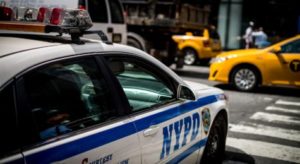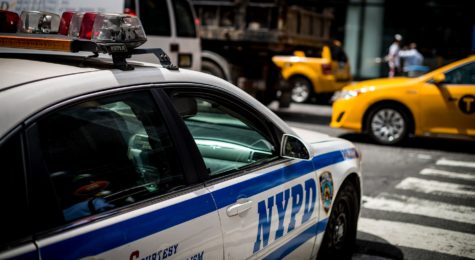OAKLAND — Cops may unintentionally use more polite language with white citizens than their black counterparts, a new study finds.
Researchers at Stanford analyzed 981 transcripts from stops conducted by 245 officers in the Oakland Police Department over the course of a month. The 183 hours of conversations were taken from body cameras worn by the officers.

One phase of the study had participants review samples of the transcribed conversations without being told any information about the person or the officer. The participants were tasked with rating how polite and fair the officers were in the way they spoke to the person they stopped.
The researchers then applied a proprietary artificial intelligence system to measure the level of courtesy that police officers displayed to citizens.
The analysis showed that the white residents of Oakland were 57 percent more likely than blacks to be addressed respectfully by an officer (e.g., apologized to or told “thank you”).
Meanwhile, African-American individuals were 61 percent more likely than white denizens to be addressed less formally (e.g., called “bro” or “dude”), or told to keep their “hands on the wheel.”
“Our findings highlight that, on the whole, police interactions with black community members are more fraught than their interactions with white community members,” says Jennifer Eberhardt, co-author of the study and professor of psychology, in a university press release.
The conclusions held constant even when variables such as the race of the officer, the severity of the offense, and the location and outcome of the stop were controlled for by the researchers. Eberhart cautions that the language didn’t necessarily indicate any kind of wrongdoing or racial bias held by officers when it came to the manner in which they spoke.
“Many factors could drive racial disparities in respectful speech,” she says.
“To be clear: There was no swearing,” emphasizes Dan Jurafsky, the study’s co-author and a professor of linguistics and computer science. “These were well-behaved officers. But the many small differences in how they spoke with community members added up to pervasive racial disparities.”
The researchers believe that these findings, along with past work they have done with local police departments, can help reduce or altogether eliminate profiling by police.
They also plan to use footage they had obtained from police body cameras in the course of their research for future research and analysis. Tone of voice, for example, was a factor not considered in the recent study.
“The fact that we now have the technology and methods to show these patterns is a huge advance for behavioral science, computer science and the policing industry,” says Rob Voigt, lead author of the study and a Stanford linguistics doctoral student. “Police departments can use these tools not only to diagnose problems in police-community relations but also to develop solutions.”
The study’s findings were published in the journal Proceedings of the National Academy of Sciences.
